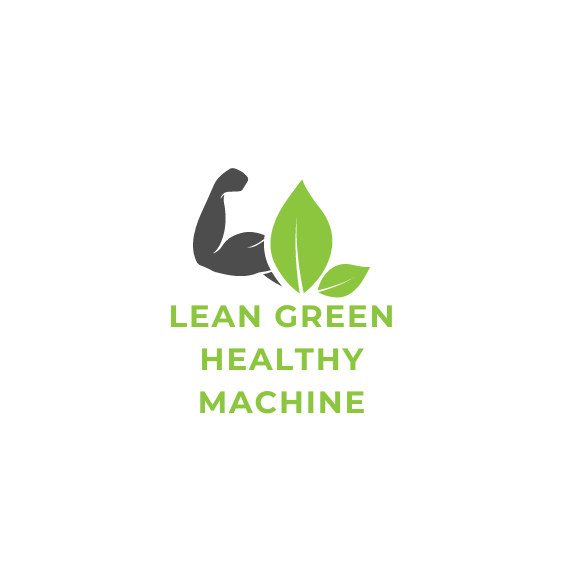Step into the world of Cancer Crushers: The Anti-Cancer Diet & Lifestyle, where food becomes your ally in the fight against cancer. In this captivating exploration, we uncover the power of nutrient-rich superfoods and delve into the secrets of longevity. From the disease-fighting potential of salmon, blueberries, and leafy greens to the wonders of plant-based power and intermittent fasting, we empower you to become an informed eater. Discover how targeted food choices can navigate the complexities of diabetes, cancer, and mental health. Embrace the journey of stress reduction, inflammation control, and mood-boosting nutrition, with actionable tips and delicious recipes to fuel your transformation. Get ready to unlock a future brimming with vitality as we arm you with the knowledge to crush cancer with your diet and lifestyle.

The Role of Diet and Lifestyle in Cancer Prevention
When it comes to cancer prevention, the role of diet and lifestyle cannot be overstated. Making conscious choices about what you eat and how you live can have a significant impact on reducing your risk of developing cancer. By understanding the link between diet and cancer, discovering the power of nutrient-rich superfoods, embracing a plant-based diet, and incorporating regular exercise and stress reduction techniques into your life, you can proactively take control of your health and decrease your chances of developing cancer.
Understanding the link between diet and cancer
Numerous studies have shown that our diet plays a crucial role in cancer prevention. Certain foods can increase the risk of cancer, while others can help protect us. By understanding the link between the two, you can make informed decisions about your food choices.
The impact of lifestyle choices on cancer risk
In addition to diet, lifestyle choices also play a significant role in cancer risk. Factors such as smoking, excessive alcohol consumption, lack of physical activity, and exposure to environmental toxins can increase the likelihood of developing cancer. By making positive lifestyle changes, you can lower your risk and improve your overall health.
The importance of early detection and regular screenings
While diet and lifestyle choices can greatly reduce your risk of cancer, it’s important to remember that regular screenings and early detection are equally crucial in preventing the development of cancer. Regular check-ups, mammograms, colonoscopies, and other screenings can detect cancer in its earliest stages when it is most treatable. Make sure to schedule regular screenings and follow your healthcare provider’s recommendations.
Superfoods for Cancer Prevention
When it comes to cancer prevention, certain nutrient-rich superfoods stand out for their extraordinary health benefits. Incorporating these superfoods into your diet can provide your body with the necessary nutrients to help fight against cancer and promote overall well-being.
Exploring the power of nutrient-rich superfoods
Superfoods are packed with essential vitamins, minerals, and antioxidants that boost the immune system, reduce inflammation, and protect against cancer. Examples of superfoods include blueberries, salmon, leafy greens, turmeric, and green tea. These foods are not only delicious but also offer numerous health benefits.
Specific superfoods that fight against cancer
Certain superfoods have been scientifically proven to have cancer-fighting properties. For instance, berries such as blueberries, raspberries, and strawberries are filled with antioxidants that help prevent DNA damage and inhibit the growth of cancer cells. Cruciferous vegetables like broccoli, cauliflower, and Brussels sprouts contain compounds that can reduce the risk of various cancers, including breast, prostate, and lung cancer.
Incorporating superfoods into your diet
Incorporating superfoods into your diet doesn’t have to be complicated. Start by adding a handful of berries to your breakfast cereal or oatmeal. Make a salad with a variety of leafy greens and add in some cruciferous vegetables for an extra nutritional boost. Consider swapping out your regular tea or coffee for a cup of green tea. These simple changes can have a significant impact on your overall health and reduce your risk of cancer.
The Benefits of a Plant-Based Diet
A plant-based diet, rich in fruits, vegetables, whole grains, legumes, and nuts, has been shown to reduce the risk of many types of cancer. By focusing on plant-based foods and minimizing the consumption of animal products, you can ensure that your body is receiving the necessary nutrients to maintain good health and lower your risk of developing cancer.
How a plant-based diet can reduce cancer risk
A plant-based diet is rich in fiber, vitamins, minerals, and antioxidants, all of which play a vital role in cancer prevention. Plant-based foods are typically low in saturated fats and high in phytochemicals, which have been shown to have anti-cancer properties. Additionally, a plant-based diet promotes a healthy weight and reduces inflammation, both of which are important factors in cancer prevention.
Optimal food choices for a plant-based diet
When following a plant-based diet, it’s important to choose a variety of fruits, vegetables, whole grains, legumes, and nuts to ensure you’re getting a wide range of nutrients. Incorporate colorful fruits and vegetables into your meals, and opt for whole grain products such as brown rice, quinoa, and whole wheat bread. Include legumes like beans, lentils, and chickpeas for protein and fiber. Nuts and seeds can also provide essential nutrients and healthy fats.
Plant-based recipes to try
Transitioning to a plant-based diet can be enjoyable and delicious. Experiment with different plant-based recipes to discover new flavors and expand your culinary horizons. Try making a colorful vegetable stir-fry, a hearty chickpea curry, or a nourishing Buddha bowl packed with grains, roasted vegetables, and avocado. There are countless plant-based recipes available online and in cookbooks to inspire you on your journey to better health.
Understanding the Impact of Sugar and Carbohydrates
Sugar and refined carbohydrates have long been associated with an increased risk of various health issues, including cancer. By understanding the relationship between sugar, carbohydrates, and cancer, as well as choosing healthier alternatives and managing sugar cravings, you can take steps to protect yourself against this risk.
The relationship between sugar, carbohydrates, and cancer
Consuming excessive amounts of sugar and refined carbohydrates can lead to weight gain and obesity, which are significant risk factors for cancer. Sugar can fuel the growth of cancer cells, promote inflammation, and weaken the immune system. Refined carbohydrates, such as white bread and sugary cereals, have a similar effect on the body.
Choosing healthier alternatives to sugar and refined carbs
To reduce your risk of cancer, opt for healthier alternatives to sugar and refined carbohydrates. Choose whole grain products like brown rice, quinoa, and whole wheat bread instead of white bread and refined cereals. Use natural sweeteners like honey or maple syrup in moderation instead of refined sugar. Consider incorporating more fruits and vegetables into your diet, as they provide natural sugars and essential nutrients.
Managing sugar cravings for a cancer-preventive lifestyle
Managing sugar cravings can be challenging but is essential for maintaining a cancer-preventive lifestyle. Instead of reaching for sugary snacks, try satisfying your cravings with naturally sweet alternatives such as fresh fruit or a small piece of dark chocolate. Drinking plenty of water, getting enough sleep, and incorporating regular exercise into your routine can also help reduce cravings and support a healthier lifestyle.

The Power of Antioxidants and Phytochemicals
Antioxidants and phytochemicals are powerful compounds found in certain foods that can help protect against cancer. By understanding the role of antioxidants in preventing cancer, identifying rich sources of these beneficial compounds, and incorporating antioxidant-rich foods into your daily routine, you can give your body a natural defense against cancer.
Exploring the role of antioxidants in preventing cancer
Antioxidants are substances that help protect cells from damage caused by free radicals, which can lead to cancer and other diseases. They work by neutralizing these harmful molecules and preventing them from causing further damage. By consuming a diet rich in antioxidants, you can strengthen your body’s defense mechanisms and reduce your risk of developing cancer.
Rich sources of antioxidants and phytochemicals
Numerous fruits, vegetables, and other plant-based foods are packed with antioxidants and phytochemicals that can have cancer-preventive effects. Some examples of antioxidant-rich foods include berries, dark leafy greens, colorful fruits and vegetables, nuts, seeds, and green tea. These foods provide a wide variety of antioxidants, vitamins, and minerals that contribute to overall health and wellbeing.
Incorporating antioxidant-rich foods into your daily routine
Incorporating antioxidant-rich foods into your daily routine can be as simple as adding a handful of berries to your morning smoothie or snack, including a side of colorful vegetables with your lunch and dinner, and enjoying a cup of green tea in the afternoon. By diversifying your diet and including a variety of antioxidant-rich foods, you can ensure that your body is receiving the maximum benefits.
The Importance of Regular Exercise
Physical activity plays a crucial role in cancer prevention. By understanding the link between exercise and cancer prevention, choosing the right types of exercises, and creating a regular exercise routine, you can significantly reduce your risk of developing cancer and improve your overall health.
Understanding the link between physical activity and cancer prevention
Regular exercise has been shown to reduce the risk of several types of cancer, including breast, colon, and lung cancer. Physical activity helps regulate hormone levels, boost the immune system, improve digestion, enhance mental health, and maintain a healthy weight. These factors collectively contribute to a reduced risk of cancer.
Choosing the right types of exercises for cancer prevention
When it comes to cancer prevention, incorporating a combination of aerobic exercises, strength training, and flexibility exercises is key. Aerobic exercises such as brisk walking, jogging, swimming, or cycling increase heart rate, improve cardiovascular health, and help maintain a healthy weight. Strength training exercises, such as lifting weights or using resistance bands, help build and maintain muscle mass. Flexibility exercises such as yoga or stretching improve range of motion and overall flexibility.
Creating a regular exercise routine
To make exercise a regular part of your routine, find activities that you enjoy and that fit into your lifestyle. Start with small, achievable goals and gradually increase the duration and intensity of your workouts. Aim for at least 150 minutes of moderate-intensity aerobic activity or 75 minutes of vigorous-intensity aerobic activity per week, along with strength training exercises two or more days a week. Incorporating physical activity into your daily life, such as taking the stairs instead of the elevator or going for a walk during your lunch break, can also make a big difference in your overall health and cancer prevention.
Stress Reduction and its Impact on Cancer
Stress can have a significant impact on our overall health, including increasing the risk of cancer. By examining the connection between stress and cancer, adopting effective strategies for stress reduction, and incorporating stress-reducing activities into your daily life, you can minimize the negative effects of stress and support your body’s cancer-preventive mechanisms.
Examining the connection between stress and cancer
Chronic stress has been linked to an increased risk of cancer development and progression. When we experience stress, the body releases stress hormones that can negatively affect various biological processes, including immune function and DNA repair. Additionally, chronic stress often leads to unhealthy coping mechanisms such as unhealthy eating, excessive alcohol consumption, and tobacco use, all of which further increase the risk of cancer.
Effective strategies for stress reduction
There are several proven strategies for reducing stress and promoting relaxation. Engaging in regular exercise, practicing mindfulness and meditation, getting enough sleep, and maintaining a healthy support system can all help manage stress effectively. Other techniques such as deep breathing exercises, journaling, engaging in hobbies, and spending time in nature can also be beneficial.
Incorporating stress-reducing activities into your daily life
Incorporating stress-reducing activities into your daily life is essential for maintaining a cancer-preventive lifestyle. Set aside time each day for relaxation and self-care. Whether it’s taking a warm bath, going for a leisurely walk, reading a book, or practicing yoga, finding activities that help you unwind and relieve stress is crucial for your overall well-being.
Environmental Factors and Cancer Risk
In addition to lifestyle choices, environmental factors also play a significant role in cancer risk. By understanding the environmental factors that increase cancer risk, taking steps to reduce exposure to harmful substances, and creating a healthy and cancer-safe environment, you can further minimize your risk of developing cancer.
Identifying environmental factors that increase cancer risk
Exposure to certain environmental factors can increase the risk of developing cancer. These factors include exposure to air pollution, radiation, and hazardous substances such as asbestos, pesticides, and industrial chemicals. Additionally, lifestyle choices such as smoking and excessive alcohol consumption can also be considered environmental factors.
Taking steps to reduce exposure to harmful substances
Reducing exposure to harmful substances can be challenging, but it is crucial for cancer prevention. To minimize exposure to air pollution, avoid spending prolonged periods outdoors in areas with high pollution levels and use air purifiers indoors. When it comes to hazardous substances, take precautions when working with chemicals and follow safety guidelines. If you smoke, seek support to quit, and limit alcohol consumption to moderate levels or avoid it altogether.
Creating a healthy and cancer-safe environment
Creating a healthy and cancer-safe environment involves making conscious choices in your daily life. Avoid using products that contain harmful chemicals, such as certain cleaning agents, personal care products, and pesticides. Opt for natural alternatives whenever possible. Additionally, incorporate healthy habits into your lifestyle, such as proper nutrition, regular exercise, stress reduction techniques, and regular screenings, to further support a cancer-preventive environment.
The Role of Sleep in Cancer Prevention
Sleep plays a vital role in our overall health, including cancer prevention. By understanding the link between sleep deprivation and cancer, implementing tips for improving sleep quality and duration, and establishing healthy sleep habits, you can optimize your sleep and reduce your risk of developing cancer.
Understanding the link between sleep deprivation and cancer
Sleep deprivation and disturbances in the sleep-wake cycle have been linked to an increased risk of cancer. Lack of sleep can disrupt hormone levels, impair the immune system, and promote inflammation, all of which are factors that contribute to cancer development and progression. Additionally, poor sleep quality and duration can negatively affect overall health and wellbeing.
Tips for improving sleep quality and duration
To improve sleep quality and duration, it’s essential to prioritize good sleep hygiene. Establish a regular sleep schedule by going to bed and waking up at consistent times each day, even on weekends. Create a sleep-friendly environment by keeping your bedroom dark, cool, and quiet. Limit exposure to screens and stimulating activities before bed, and establish a relaxing bedtime routine.
Establishing healthy sleep habits
Establishing healthy sleep habits is key to maintaining good sleep and reducing the risk of cancer. Avoid consuming stimulating substances like caffeine and nicotine close to bedtime. Engage in relaxation techniques such as deep breathing or meditation before bed to promote a calm and restful state. Aim for seven to nine hours of quality sleep per night to support your overall health and wellbeing.
Harnessing the Power of Mindfulness and Meditation
Mindfulness and meditation are powerful practices that can support cancer prevention by reducing stress, promoting emotional well-being, and enhancing overall health. By understanding how mindfulness and meditation can support cancer prevention, learning practical techniques for incorporating them into your daily life, and exploring guided meditation practices, you can harness their transformative potential.
How mindfulness and meditation can support cancer prevention
Mindfulness and meditation practices can have profound effects on our physical and mental well-being. They help reduce stress, promote relaxation, improve sleep quality, boost immune function, and enhance overall emotional well-being. By incorporating mindfulness and meditation into your life, you can support your body’s natural cancer-preventive mechanisms.
Practical techniques for incorporating mindfulness into your daily life
Incorporating mindfulness into your daily life doesn’t require extensive training or special equipment. You can start by taking a few moments each day to focus on your breath, allowing yourself to be fully present in the moment. Practice mindful eating by savoring each bite, paying attention to the flavors and textures of your food. Engage in activities mindfully, such as walking, cleaning, or even brushing your teeth, by bringing your full attention to the task at hand.
Guided meditation practices for stress reduction and mental well-being
Guided meditation practices can provide structure and guidance for your mindfulness and meditation journey. There are countless guided meditation apps and online resources available that offer specific practices targeted towards stress reduction, relaxation, and mental well-being. Explore various guided meditation practices to discover the ones that resonate with you and incorporate them into your daily routine for optimal benefits.
In conclusion, a cancer-preventive lifestyle encompasses various factors, including diet, lifestyle choices, exercise, stress reduction, sleep, environmental factors, and mindfulness. By understanding the role of these factors in cancer prevention, making conscious choices, and incorporating beneficial habits into your daily routine, you can significantly reduce your risk of developing cancer and embrace a future filled with vitality and well-being.

